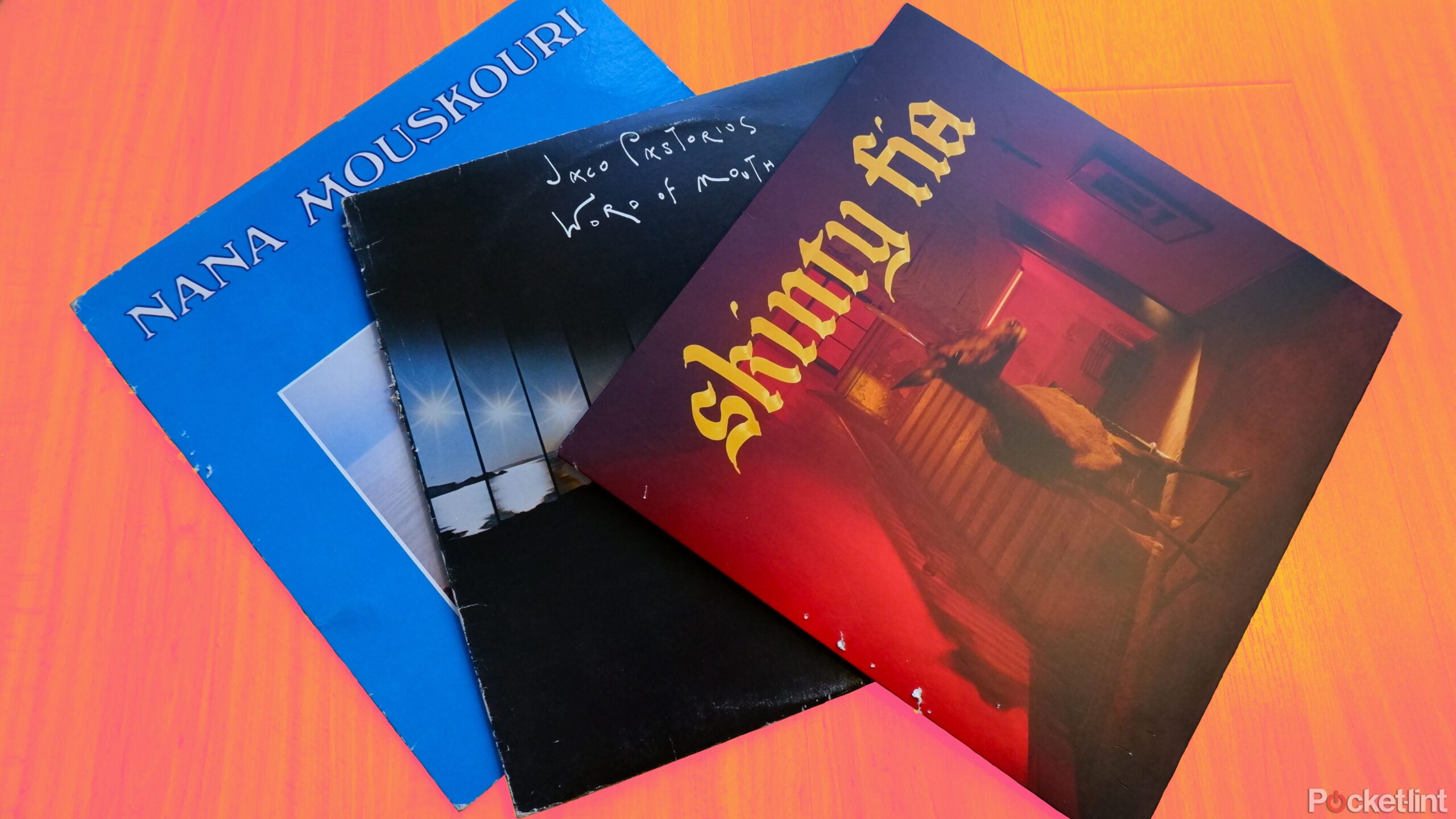Gadgets
How to tell if your vinyl records are worth anything

Key Takeaways
- The condition of records is crucial for determining price, especially in terms of wear and tear.
- First pressings are more valuable because they are often pressed in smaller runs.
- Checking listings for the same record or similar ones online will help you figure out a reliable price point.
If you’ve accumulated a collection of vinyl records over the years, there’s a possibility you have a gold mine on your shelf. Vinyl records have been back in vogue for a while, since their resurgence in popularity in the 2010s, they’ve stayed strong even while other retro audio tech comes back in, like CDs and cassettes.
But maybe you want to get rid of some of them for whatever reason. If you’re going to list them for sale online, like on Discogs or eBay, you’re going to have to figure out what they’re actually worth, so you can make an appropriate amount of money off of them, without underselling or overselling them. So whether you’re downsizing to save space, want to get rid of some things for a big move, or just want to make some money off your collection, here are some ways to figure out how much your vinyl records are worth.
Determine the condition of your record
Records wear away with excessive use, so condition matters
The condition your record is in is one of the most important factors in terms of value. You need to take note of any potential issues, as well as how much the record has been used, when considering how much it can be listed for. If you’ve spun a record hundreds of times, it’s a lot more likely to have worn way in areas, therefore devaluing it. Ask yourself the following questions, just to name a few:
- Has it accumulated dust in the grooves?
- Is it scratched anywhere?
- Does it skip anywhere when played?
You should also take into account the condition of the packaging as well. Pay attention to if the record jacket has any significant marks or rips on it, if the record sleeve is intact, and if there are any inserts that came with the record, and if they are still in good condition. Take note of all of these, and include them in the listing for transparency.
Find out if the record is unique or rare
Different pressings and editions will likely be worth different amounts
Records are harder to produce than other media like CDs, so pressings are often a lot more limited, and various pressings may have different value, or have turned out a bit differently. If you have a record from the first pressing of a well-loved older album, that’ll be more valuable, since they’re usually produced in smaller quantities.
If you have a record from the first pressing of a well-loved older album, that’ll be more valuable, since they’re usually produced in smaller quantities.
Additionally, if the record you’re selling had very few copies made in total, or if you have an edition that’s a special or limited run, that will drive the price up more. Take a look at any information you can find on the record jacket, or look up the record online to find any clues as to when the record was pressed and what edition it is, since this matters a lot to collectors.
Check prices for the same record online
Make sure you’re valuing the record similarly to others
To make sure you’re not overvaluing or undervaluing your record, it’s smart to check listings online for the same record, especially of the same edition and in the same condition. You can get a good idea of what specific records are worth on Discogs, because these listings are often ultra-specific, but you can also check out eBay and Facebook Marketplace. Getting an idea about what others have valued theirs at is important, both so you can make sure you’re getting the full amount the vinyl is worth, and so that you can actually sell it. If you charge too much for a record, especially in comparison to other similar ones, chances are it’s not going to sell.
You can get a good idea of what specific records are worth on Discogs, because these listings are often ultra-specific.
If there aren’t a lot of listings online for your record, you might be able to bump up the value a little bit, but don’t go overboard. You can also check the prices for other very similar records that aren’t identical to yours, just to have more points of reference to go off of.
Ask someone for a second opinion
It’s always good to double-check
If you’re a vinyl collector, you may know some other fellow collectors or enthusiasts. You can always ask other people their opinions, especially if they’ve listed records for sale before too. You can also seek the opinions of people online, like on forums dedicated to vinyl records, because other people may have insight from their own experiences or be able to help you answer questions about the value of your records.
You could also seek out a professional opinion, but that might cost you some money, which may be antithetical to your goal of making money off your records. Ultimately, cheapest option is to likely ask your friends and peers who are also into vinyl and those who have experience selling it. You might even be lucky enough to find someone who wants to buy it off you.
-

 Destination8 months ago
Destination8 months agoSingapore Airlines CEO set to join board of Air India, BA News, BA
-

 Breaking News10 months ago
Breaking News10 months agoCroatia to reintroduce compulsory military draft as regional tensions soar
-

 Gadgets3 months ago
Gadgets3 months agoSupernatural Season 16 Revival News, Cast, Plot and Release Date
-

 Tech News12 months ago
Tech News12 months agoBangladeshi police agents accused of selling citizens’ personal information on Telegram
-

 Productivity11 months ago
Productivity11 months agoHow Your Contact Center Can Become A Customer Engagement Center
-

 Gadgets4 weeks ago
Gadgets4 weeks agoFallout Season 2 Potential Release Date, Cast, Plot and News
-

 Breaking News10 months ago
Breaking News10 months agoBangladesh crisis: Refaat Ahmed sworn in as Bangladesh’s new chief justice
-

 Toys12 months ago
Toys12 months ago15 of the Best Trike & Tricycles Mums Recommend


























